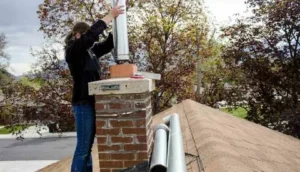
When dealing with international legal matters, having your documents recognized abroad is essential. One way to ensure global acceptance is through Apostille certificate notarization in Irving TX Whether you’re planning to work, study, or marry in another country, understanding this process will help you avoid costly mistakes and unnecessary delays.
What Is Apostille Certificate Notarization?
Apostille certificate notarization is a two-step process that authenticates the origin of a public document. It begins with a notarization by a licensed notary public, followed by an Apostille certificate issued by the appropriate state or federal authority. This certificate confirms that the notary or issuing officer is legitimate, and it makes the document legally recognized in any member country of the Hague Apostille Convention.
Why Do You Need an Apostille?
Many foreign governments require Apostille certification to accept documents from other countries. Common uses include:
- International adoptions
- Foreign marriage licenses
- Overseas education
- Immigration matters
- Business dealings abroad
Without an Apostille, your document might be rejected, causing legal delays or denials.
Types of Documents That May Require an Apostille
Certain personal and legal documents frequently require Apostille certification. These may include:
- Birth and death certificates
- Marriage and divorce decrees
- Power of attorney
- FBI background checks
- Diplomas and transcripts
- Corporate documents like Articles of Incorporation
Each type may have specific processing steps, especially if they involve translations or notarizations.
The Notarization Process: First Step Toward Apostille
Before obtaining an Apostille, the document must often be notarized by a state-commissioned notary public. This step involves:
- Verifying the identity of the signer
- Witnessing the signing of the document
- Affixing a notarial seal and signature
Make sure the notary is active and follows your state’s specific requirements. Improper notarization can lead to Apostille rejection.
How to Obtain an Apostille Certificate
After notarization, the document must be submitted to the appropriate authority:
- For state-issued documents: Contact your Secretary of State’s office
- For federal documents: Submit to the U.S. Department of State
Each jurisdiction may have its own submission requirements and processing times. Some states offer online tracking, while others require in-person or mail-in requests.
Apostille vs. Legalization: What’s the Difference?
People often confuse Apostille with legalization. While both authenticate documents, they differ in scope:
- Apostille: Recognized only in countries that are members of the Hague Apostille Convention
- Legalization: Required for countries not part of the convention and often involves consulate or embassy approval
If you’re unsure which method is needed, check with the consulate or embassy of your destination country.
Common Mistakes to Avoid During the Process
Getting an Apostille might seem straightforward, but errors can cause delays. Avoid these common pitfalls:
- Submitting incomplete or unsigned documents
- Using a notary whose commission has expired
- Sending the wrong form to the Secretary of State
- Not checking if the document first needs county certification
- Applying for an Apostille when the destination country requires legalization instead
Double-check all requirements before submitting anything.
Can You Get an Apostille Online?
In some states, yes. If your document is already notarized and eligible, you may be able to apply for an Apostille online. Digital Apostilles are becoming more common, but not all documents qualify for electronic processing. Some still require in-person or mail delivery.
Using a Professional Apostille Service
If you’re short on time or unfamiliar with the process, professional Apostille services can handle the paperwork for you. These companies:
- Review your documents for completeness
- Provide step-by-step guidance
- Handle notarization and mailing
- Offer faster turnaround times
Though there’s an additional cost, the convenience and reduced risk of rejection are often worth it.
FAQs
Q1: Do all notarized documents require an Apostille?
No. Apostilles are only needed when the document is being used in another country that is part of the Hague Apostille Convention.
Q2: How long does it take to get an Apostille?
Processing times vary by state but typically range from 1 to 3 weeks. Expedited options may be available.
Q3: What if my document is in a foreign language?
Many states require a certified English translation to accompany the original. Always check specific state rules.
Q4: Can I notarize a copy of a document and Apostille that?
In some cases, yes. But certain documents, like vital records, must be original certified copies from the issuing authority.
Q5: Is an Apostille valid forever?
The Apostille itself does not expire, but the document it certifies might have a legal timeframe for use (e.g., background checks often expire within 6 months).
Final Thoughts
Navigating apostille certificate notarization doesn’t have to be overwhelming. By understanding each step—from notarization to submission—you can ensure your documents are recognized internationally without unnecessary setbacks. When in doubt, consult your local notary, Secretary of State, or a reputable Apostille service to guide you through the process confidently





